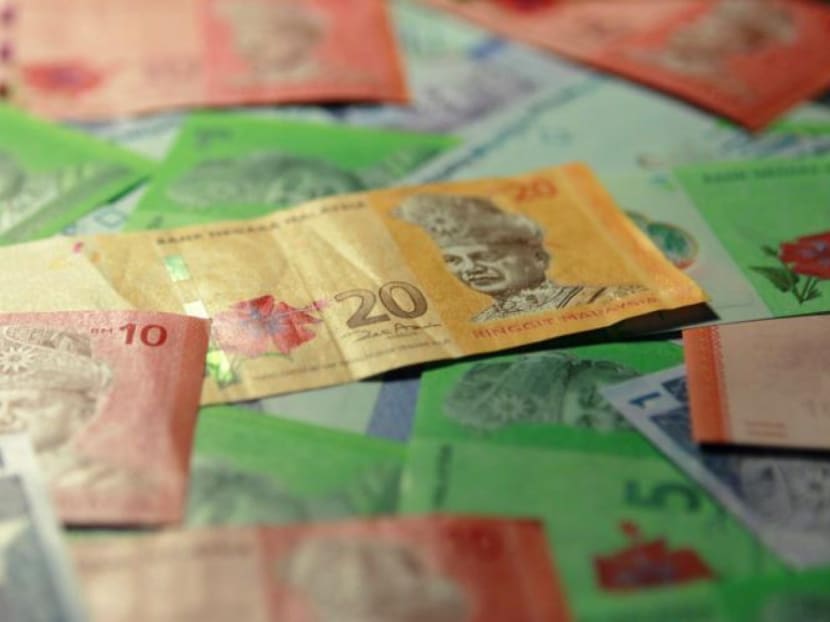Ringgit falls to weakest against SGD in almost two decades
SINGAPORE —The Malaysian ringgit today (Dec 12) fell to its weakest level against the Singapore dollar in almost two decades, as government bonds fell on concern a slump in oil prices will hurt government efforts to reduce the fiscal deficit.
SINGAPORE —The Malaysian ringgit today (Dec 12) fell to its weakest level against the Singapore dollar in almost two decades, as government bonds fell on concern a slump in oil prices will hurt government efforts to reduce the fiscal deficit.
As at 9pm, S$1 could buy RM2.67, compared with RM2.63 ringgit at the beginning of the month. The value of the ringgit now is comparable to the levels during the depths of the Asian financial crisis in 1997 and 1998.
The currency has declined 6.8 per cent since Oct 10, the worst-performing currency in Asia, as the drop in crude threatens to crimp revenue in the petroleum-exporting nation. The ringgit extended losses to a ninth week — the longest run of weekly losses this year — depreciating 0.7 per cent from Dec 5 to 3.4955 per US dollar.
The slump in the ringgit had caught moneychangers in Singapore off-guard last week, and some ran short of the currency for several days.
Today, moneychangers said they were still seeing long queues of people buying the Malaysian currency at their shops. However, they were not expecting a shortage in the coming days. Mr Mohamad Rafik of Arcade Money Changers said: “Most people already bought as much ringgit as they can. I don’t think they will buy more.”
The falling value of the ringgit over the past weeks has been good news to Malaysians working in Singapore and Singaporeans who regularly travel across the Causeway for business or leisure.
However, it is having an adverse impact on the Malaysian economy and its people, analysts said.
The drop in oil may pull down Malaysia’s current-account surplus, which was at RM7.6 billion last quarter, the least since June last year. A weaker exchange rate will also push up import prices just as Malaysia prepares to introduce a 6 per cent goods and services tax in April. Consumer-price increases will average 4 per cent next year, the highest in seven years, according to a Bloomberg survey of 21 economists. Inflation averaged 3.2 per cent in the first 10 months of this year. AGENCIES, ADDITIONAL REPORTING BY YVONNE LIM







